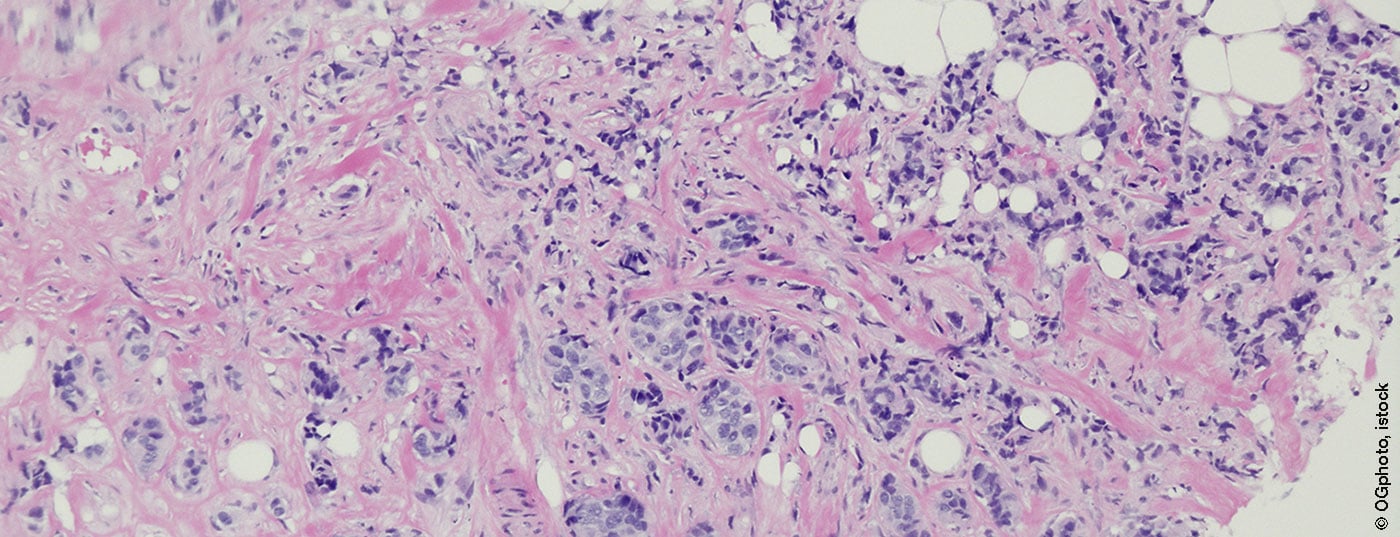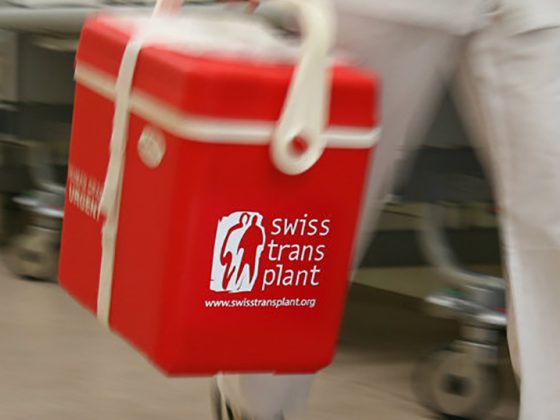Targeted therapies are currently used primarily in locally advanced or metastatic breast cancer. Recent study data now suggest that earlier-stage sufferers may also benefit.
CDK4/6 inhibitors have already demonstrated efficacy in advanced or metastatic breast cancer. They are associated with a significant prolongation of progression-free survival in combination with anti-hormonal therapy. They have now become the standard of care in endocrine-sensitive metastatic carcinoma. Due to the positive response and good tolerability, the compounds have now been investigated in endocrine sensitive tumors in the early disease phase.
The derailed cell growth is due, among other things, to a dysregulation in the cell cycle, which is controlled by cyclins and cyclin-dependent kinases (CDKs). Interaction with cyclin D activates CDK4/6, which have been shown to be regulators of the cell cycle. By phosphorylating the retinoblastoma tumor suppressor protein, they trigger the transition from G1 phase to the proliferative S phase of the cell cycle. Accordingly, inhibition of cyclin-dependent kinases can curb cell division.
Neo-adjuvant use
After diagnosis, CDK4/6 inhibitors were given for two and four weeks, respectively, and KI-67 was measured as evidence of response. It was shown that s the drugs could significantly slow down proliferation in some cases even without additional endocrine therapy. The goal would be to significantly reduce the risk of metastasis.
Source: Congress St. Gallen International Breast Cancer Conference 2019
InFo ONCOLOGY & HEMATOLOGY 2019; 7(2-3): 38 (published 6/21/19, ahead of print).











